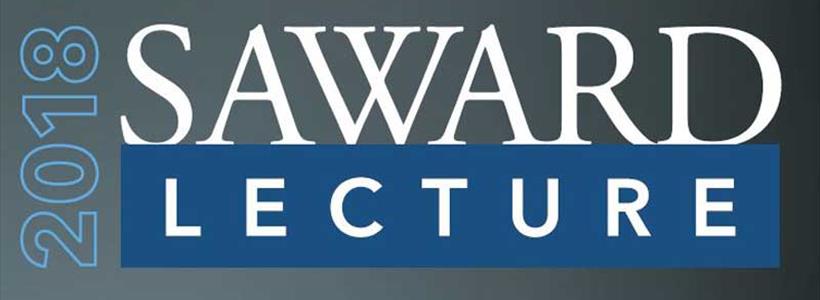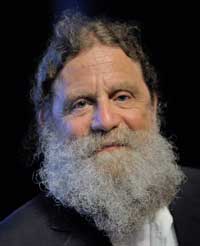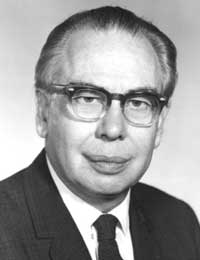Robert Sapolsky Delivers CHR’s 28th Annual Saward Lecture
Stories - Oct 18 2018

With rich scientific content and plenty of humor, author and biologist Robert Sapolsky illuminated the causes and health impact of stress at the 2018 Saward Lecture.
 Robert Sapolsky
Robert Sapolsky
On October 8, the Kaiser Permanente Center for Health Research welcomed Robert Sapolsky, PhD, to Portland for its annual Saward Lecture, a tradition dating back to 1989. Dr. Sapolsky—author, professor of neurology and biology, and MacArthur “Genius” Fellow—spoke to an audience of nearly 600 at the Newmark Theatre.
Dr. Sapolsky’s talk was based on his acclaimed book Why Zebras Don't Get Ulcers: A Guide to Stress, Stress-Related Disease, and Coping. As he explained in his opening remarks, people who live in developed societies no longer live in fear of the diseases that used to terrify us, such as smallpox, malnutrition, or the plague. Instead, we worry about diseases associated with the Western lifestyle, especially hypertension and cardiovascular disease.
Drawing extensively from his knowledge of stress response among animals, Dr. Sapolsky illuminated the problems that arise when humans experience stress as a chronic condition, rather than a temporary fight-or-flight response.
For three decades, Dr. Sapolsky has divided his time in the laboratory, where he conducts neurological research, and the natural world, where he immerses himself in the world of baboons and other animals in order to understand their social organization and the role stress plays in their lives. This breadth of experience, in addition to making him a highly engaging and entertaining speaker, has informed several other award-winning books, including Monkeyluv and Other Essays on our Lives as Animals and Behave: The Biology of Humans at Our Best and Worst.
About the Saward Lecture
 Ernie Saward, MD
Ernie Saward, MD
The Saward Lecture series is named after Ernie Saward, MD (1914–89), medical director of Kaiser Permanente Northwest from 1948 to 1969. Dr. Saward’s pioneering vision and administrative skill helped to launch the health maintenance organization movement. In the early 1960s, he established the Medical Care Research Unit, which later became the Center for Health Research.
The Center for Health Research presents the Saward Lecture once a year, free of charge to the community. The lecture series is made possible with support from Kaiser Permanente’s Community Benefit Initiative.
To be added to our mailing list for future Saward Lectures, please send an email to saward.lecture@kpchr.org.